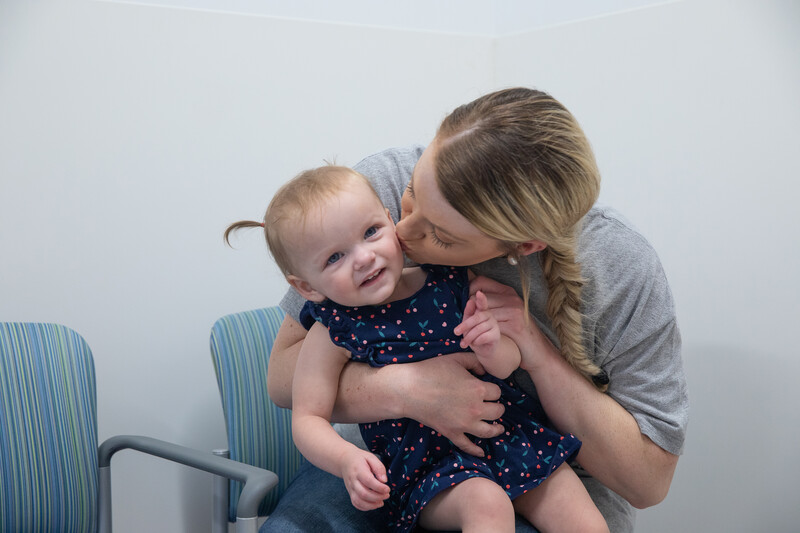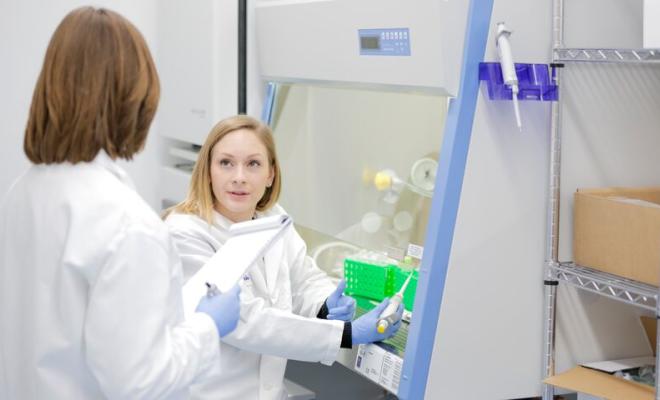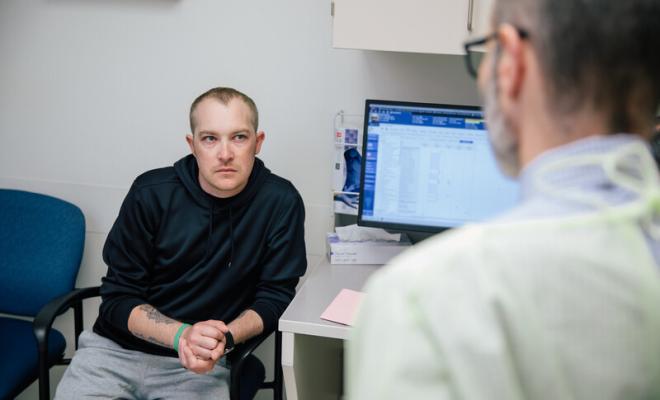What Is CRMS/CFSPID and What Are the Symptoms?
Cystic fibrosis transmembrane conductance regulator (CFTR)-related metabolic syndrome (CRMS), also known as CF Screen Positive, Inconclusive Diagnosis (CFSPID) in Europe, describes an inconclusive CF diagnosis following newborn screening (NBS).
Infants who have CRMS/CFSPID show high immunoreactive trypsinogen (IRT) levels during NBS, but have sweat test results that fall within the intermediate range and fewer than two CF disease-causing mutations. Over time, it is likely that your child will either be diagnosed with CF or conclusively diagnosed as not having CF. If further testing is unavailable or found to be inconclusive, the diagnosis cannot be resolved, and they may be considered to have CFTR-related disorder.
The exact definition of CRMS/CFSPID is an infant with a positive NBS test for CF and either:
- A sweat chloride value <30 mmol/L and two CFTR mutations, at least one of which does not cause any physical symptoms.
- An intermediate sweat chloride value (30-59 mmol/L) and one or no CF-causing mutations.
Learn about the CF Foundation’s guidelines for health care providers to diagnose CRMS/CFSPID.
Although the future health of someone designated with CRMS/CFSPID remains unclear, there is a higher risk of experiencing problems in the airways, sinuses, intestines, pancreas, or the reproductive system. In some cases, evolving signs and symptoms, new information about disease-causing CFTR mutations, or changes in sweat chloride concentration levels may ultimately lead to a CF diagnosis.
"Because of the limited knowledge, we must rely on clinical evidence to assess our daughter’s evolution. Our annual check-ups at Children’s Hospital are always a brutal reminder of the threat that looms. The sweat test — a particularly unpleasant lengthy procedure — keeps returning the same message: intermediate levels. Not positive, not negative: uncertain. And, yet, we know we are fortunate. Our daughter is growing up without any symptoms that would make us think that the CRMS potential threat is manifesting in any way." — Álvaro La Parra-Pérez, parent of a child with CRMS, from the CF Community Blog
You should see your regular doctor — and a CF specialist — if your child has any of these symptoms:
- No weight gain.
- Loose stools, very bad gas, or constipation that lasts more than two weeks.
- Very bad stomach aches.
- Coughing or wheezing that lasts more than two weeks.
How to Stay Healthy With CRMS
If your baby is classified as having CRMS/CFSPID, it's important to take him or her to a CF specialist before 2 months of age. In addition, infants should be seen by a CF specialist at least twice in their first year.
Learn about the CF Foundation’s CRMS care guidelines for healthcare providers to treat infants during the first 2 years and beyond.
Unless your child experiences symptoms related to CRMS/CFSPID, the best thing to do is to have yearly checkups with a CF specialist at a CF Foundation-accredited care center so that any health changes or problems can be found early and treated quickly. Children with CRMS/CFSPID should also undergo at least one repeat sweat test at an accredited CF center. In addition, genetic counseling should be offered to families of individuals with CRMS/CFSPID, including a discussion of the risk in future pregnancies.
As is true for everyone, people with CRMS/CFSPID should not be around tobacco smoke. All people 6 months old and older should receive an influenza vaccine every year in the fall.
The CF Foundation is committed to understanding more about CRMS/CFSPID through continued research and improvements in clinical care.



